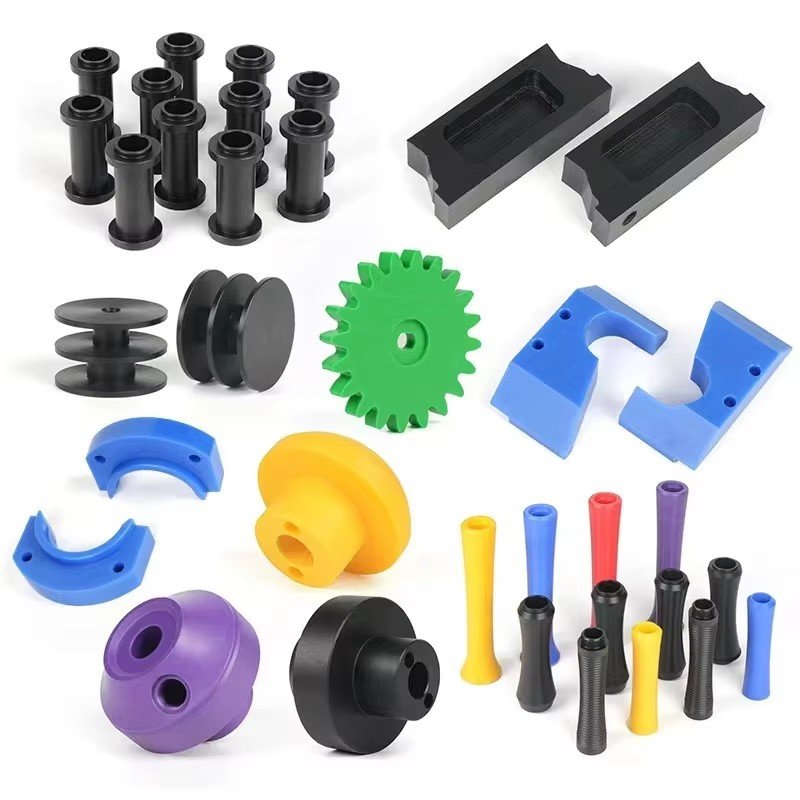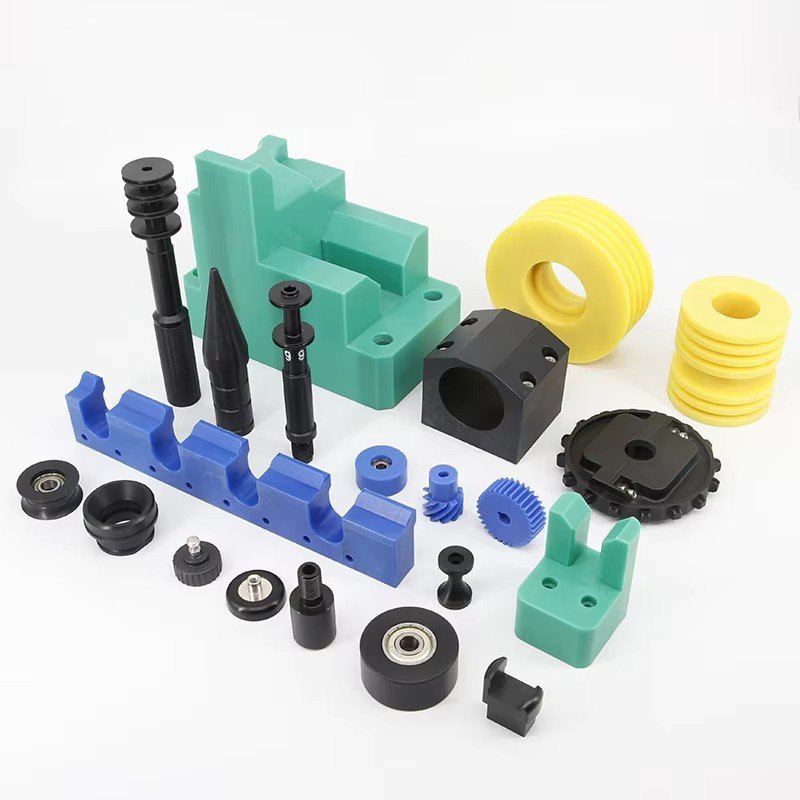Custom CNC Machining Polypropylene Parts
Professional polypropylene (PP) CNC machining services with 15+ years of manufacturing expertise. Precision parts for automotive, medical, and industrial applications.

Why Choose Our Polypropylene CNC Machining Services
As a leading CNC manufacturer in China, Rapidaccu delivers precision polypropylene parts with exceptional quality and competitive pricing.
15+ Years Experience
Extensive expertise in CNC machining polypropylene with proven track record across multiple industries.
Precision Tolerance ±0.005″
Achieve tight tolerances and superior surface finishes for critical polypropylene components.
Fast Turnaround
Quick delivery times from our state-of-the-art facility in Shenzhen, China.
Quality Certified
ISO certified manufacturing processes ensuring consistent quality and reliability.
Advanced CNC Equipment
State-of-the-art 3-axis and 5-axis CNC machines for complex polypropylene parts.
Competitive Pricing
Cost-effective manufacturing solutions without compromising on quality standards.
Polypropylene Material Properties
Polypropylene (PP) is a versatile thermoplastic polymer offering excellent chemical resistance, low density, and superior mechanical properties for demanding applications.
Chemical Resistance
Excellent resistance to acids, bases, and organic solvents
Lightweight
Low density (0.9 g/cm³) for weight-sensitive applications
Fatigue Resistance
Superior flex life for living hinges and flexible parts
Temperature Range
Operating range: -20°C to +100°C

Our CNC Machining Process
From design to delivery, we ensure precision at every step
Design Analysis
CAD file review and DFM optimization for polypropylene machining
Material Selection
Choose optimal PP grade based on application requirements
CNC Machining
Precision machining using advanced CNC equipment and tooling
Quality Control
Comprehensive inspection and testing before shipment
Polypropylene Applications
Versatile applications across multiple industries
Automotive Components
- Interior trim parts
- Dashboard components
- Battery cases
- Fluid reservoirs
Medical Devices
- Disposable syringes
- Laboratory equipment
- Surgical instruments
- Medical housings
Consumer Products
- Food containers
- Appliance parts
- Toys and games
- Sporting goods
Industrial Equipment
- Chemical processing
- Pump components
- Valve parts
- Tank linings
Electronics
- Enclosures
- Connectors
- Insulators
- Cable management
Packaging Industry
- Rigid containers
- Caps and closures
- Flexible packaging
- Protective cases
Polypropylene Grades Comparison
Choose the right PP grade for your specific application requirements
| Grade Type | US Standard | Tensile Strength (MPa) | Flexural Modulus (GPa) | Impact Strength (kJ/m²) | Suitable Applications | Cost Level |
|---|---|---|---|---|---|---|
| PP Homopolymer | ASTM D4101 – PP110G20 | 31-37 | 1.5-1.7 | 20-40 | Automotive parts, appliances, rigid containers | Low ($) |
| PP Random Copolymer | ASTM D4101 – PP120G30 | 28-35 | 1.3-1.5 | 40-80 | Medical devices, food packaging, transparent parts | Medium ($$) |
| PP Impact Copolymer | ASTM D4101 – PP140G40 | 25-32 | 1.1-1.3 | 80-150 | Automotive bumpers, outdoor furniture, toys | Medium ($$) |
| PP + Glass Fiber (20%) | ASTM D4101 – PP220G20 | 45-55 | 3.5-4.5 | 50-70 | Structural parts, electrical components, housings | High ($$$) |
| PP + Glass Fiber (30%) | ASTM D4101 – PP230G30 | 55-65 | 4.5-5.5 | 60-80 | High-strength automotive parts, industrial equipment | High ($$$) |
| PP + Talc Filled | ASTM D4101 – PP210T20 | 35-42 | 2.5-3.0 | 25-35 | Dashboard parts, interior panels, thin-wall applications | Medium ($$) |
| PP High Flow | ASTM D4101 – PP110G10 | 30-35 | 1.4-1.6 | 25-45 | Thin-wall packaging, complex geometries, fast cycles | Medium ($$) |
Material Selection Guidelines
- Homopolymer PP: Best for rigid parts requiring high stiffness and chemical resistance
- Random Copolymer: Ideal for transparent parts and medical applications
- Impact Copolymer: Recommended for parts requiring high impact resistance
- Glass Filled PP: Perfect for structural applications requiring high strength
Frequently Asked Questions
Get answers to common questions about polypropylene CNC machining
What are the advantages of CNC machining polypropylene over other manufacturing methods?
What tolerances can be achieved with polypropylene CNC machining?
Which polypropylene grade is best for medical device applications?
What is the typical lead time for custom polypropylene CNC parts?
Can polypropylene parts be post-processed or finished after CNC machining?
What are the temperature limitations for polypropylene CNC machined parts?
Contact Rapidaccu
Ready to start your polypropylene CNC machining project? Get in touch with our expert team today.
Our Location
Rongli Industrial Park, Dalang,
Longhua District, Shenzhen, China
Email Us
info@rapidaccu.comExperience
15+ Years in CNC Manufacturing
Quality Assurance
ISO Certified Manufacturing
